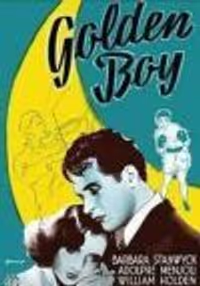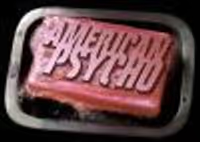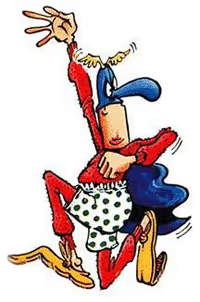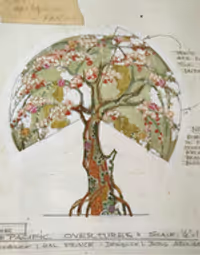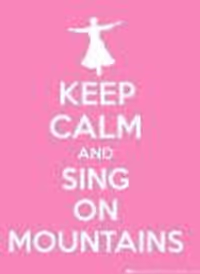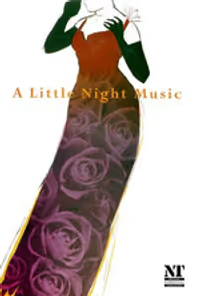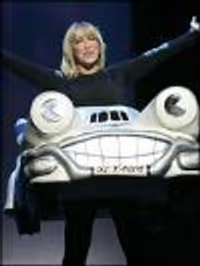The Last Ship previews
#200The Last Ship Previews
Posted: 10/21/14 at 10:44pm
Then why oh why almost everytime I see a new musical, I am depresssed forlorn sad and bored and unable to hum anything decent?
Exceptions: Beautiful, Wicked, Book of Mormon
What have they done to the Broadway Musical?
We don't have Cy Coleman or Kander and Ebb or Bock and Harnick or Jule Styne or Bob Merrill or Jones and Schmidt. Those guys wrote scores. Even Larry Grossman and Hal Hackaday who wrote the fabulous Minnies Boy's score is preferable.
What passes for composers nowadays pales in comparison. Sting? Cyndi Lauper (overated) La Chiusa, Tom Kitt, Tim Minchin.
No wonder we are relying more and more on the Beach Boys, Motown and Carole King for decent music.
#201The Last Ship Previews
Posted: 10/21/14 at 11:19pm
"Then why oh why almost everytime I see a new musical, I am depresssed forlorn sad and bored and unable to hum anything decent?"
Is humming really the metric for musical success?
#202The Last Ship Previews
Posted: 10/21/14 at 11:27pmI personally don't think all scores should try to be memorable, if they end up being memorable, then they earned it!
#203The Last Ship Previews
Posted: 10/22/14 at 10:45am
Then why oh why almost everytime I see a new musical, I am depresssed forlorn sad and bored and unable to hum anything decent?
Exceptions: Beautiful, Wicked, Book of Mormon
Well, those are your exceptions, but your personal taste in scores isn't indicative of the state of the Broadway musical, which appears to be doing quite well.
What have they done to the Broadway Musical?
Nobody has "done" anything to the Broadway Musical.
We don't have Cy Coleman or Kander and Ebb or Bock and Harnick or Jule Styne or Bob Merrill or Jones and Schmidt. Those guys wrote scores.
The living composers of Broadway musicals write scores as well. Sorry you don't like them, but that's your issue, not Broadway's.
What passes for composers nowadays pales in comparison. Sting? Cyndi Lauper (overated) La Chiusa, Tom Kitt, Tim Minchin.
Interesting little group you cherry-picked. Three with only their first Broadway outings and a plethora of composers completely ignored.
No wonder we are relying more and more on the Beach Boys, Motown and Carole King for decent music.
Apples to oranges. Different shows written for different reason, often for different audiences, and different rates of success. Bemoaning jukebox musicals and bio-musicals is as trendy as producing them, but like any other sub-genre of musical theatre that has been around for decades, they have hits and flops like conventional book musicals.
I've seen MANY MANY MANY musicals produced after the 70s that I felt had beautiful, intelligent, entertaining and hummable scores. My general feeling is that millions of others have as well. Sorry you don't like 99% of them, but it sounds like you would be happy with any composer who isn't dug up from the grave.
#204The Last Ship Previews
Posted: 10/22/14 at 11:02am
I think there's actually been a burst of ravishing music in recent Broadway scores--
Steven Lutvak's GENTLEMEN'S GUIDE...
Jason Robert Brown's BRIDGES OF MADISON COUNTY
Frank Wildhorn's BONNIE AND CLYDE to name just 3.
And even Tim Minchin wrote a bunch of lovely hummable numbers in MATILDA-- I'm thinking of "Quiet" and the gorgeous "When I Grow Up" for starters.
#205The Last Ship Previews
Posted: 10/22/14 at 11:11amI don’t understand basing a score’s merits on its ability to be hummed. I can certainly understand the appeal of catchy scores and being able to walk out of a theatre singing/humming one of the songs, but I also don’t think it’s a detriment to the score if that doesn’t happen. I’ve heard many scores that I consider to be brilliant because they worked perfectly within the moment, they are true to the character, and accurately express the emotion happening in the situation, but aren’t necessarily catchy or hummable. That didn’t take anything away from the score working perfectly in the moment for me. I remember during the big debate over whether the “Kinky” or “Matilda” score is better, so many people’s reasoning for preferring the “Kinky” score was that they walked out of the theatre humming a song and weren’t able to do that at “Matilda.” I always thought it was such an odd reason to give for thinking one score is “better” than the other. (Something I didn’t even understand, as many songs from “Matilda” are constantly stuck in my head.)
#206The Last Ship Previews
Posted: 10/22/14 at 11:16am
I can understand your argument, GilmoreGirl, but once the songs begin to take on a predictable pattern, as they do here, they stop working in the moment/context of the piece. (It was like "here's a big, upbeat dance number, then here's a dreary ballad, here's another upbeat song..." you get the picture.)
#207The Last Ship Previews
Posted: 10/22/14 at 11:27am
I can understand your argument, GilmoreGirl, but once the songs begin to take on a predictable pattern, as they do here, they stop working in the moment/context of the piece. (It was like "here's a big, upbeat dance number, then here's a dreary ballad, here's another upbeat song..." you get the picture.)
I totally understand this argument that you brought up and I wasn’t talking about “The Last Ship,” specifically. I was just talking about the idea that some have that if a score isn’t hummable/catchy, that automatically makes it “bad” and vice versa. I can think of plenty of songs/scores that are damn catchy and I left the theatre humming it, but I didn’t think were very good at all.
#208The Last Ship Previews
Posted: 10/22/14 at 11:33amI like to have a couple of songs in my head, but I know that's not everyone's thing. But, I don't like predictability in scores as a rule and the paint by numbers musical creation is really dull.
#209The Last Ship Previews
Posted: 10/22/14 at 11:38amTo me, it's all about how the score serves the show and the story, and style of the show itself. Light in the Piazza had very little I would consider "hummable" (upon first listen, at least), but I believe it is a beautiful and complex piece of work that services the show brilliantly. I don't consider the score to Legally Blonde to be a fair comparison because the shows were written for entirely different purposes, but I found most of the score hummable and delightful, also servicing the piece very well. Whereas, the scores of Ricky Ian Gordon and Andrew Lippa have never done a thing for me, hummable or not.
#210The Last Ship Previews
Posted: 10/22/14 at 12:43pm
"Hummable" is also partially an artistic choice. You'd be hard-pressed to leave Phantom without those melodies in your head, but a lot of that is just the sheer amount of times they are repeated and repeated and repeated. If they played those songs/melodies once, they would still be as lovely, but you might not have had as much time processing them were it not for the repetition.
I found The Last Ship memorable in part because I watched Sting's live broadcast of them at the Public, so in some ways I had got them into my head in advance. Similarly, the inclusion of earlier songs from his catalog had the same effect, so hummability isn't a brilliant melody that you can't shake. It's a math equation that not everyone wants to include in their shows.
Not to mention the flip side of hummability, which you can often experience at Beautiful, where everyone in the audience knows all the songs and wants everyone around them to know that they know them, so they are saying the lyrics and humming the melodies of the orifinal recordings, despite that not being the way they are being presented onstage. Leading to the deep gravelly voiced senior behind to say "Will You Still Love Me Tomorrow" a good 10 seconds before Jessie Mueller got to it.
Updated On: 10/22/14 at 12:43 PM
#211The Last Ship Previews
Posted: 10/22/14 at 1:02pm
I saw that concert live and the show in the case of The Last Ship. I did not like it much more seeing it on stage. It just didn't work for me. (The opening made more sense in the concert version because the sound system was messed up the night I was there so I couldn't hear very well-and I was in the front row.)
After Eight
Broadway Legend Joined: 6/5/09
#212The Last Ship Previews
Posted: 10/22/14 at 2:06pm
"I was just talking about the idea that some have that if a score isn’t hummable/catchy, that automatically makes it “bad” and vice versa."
Actually, it seems to me that the reverse argument is, if not voiced, then certainly used as the prevailing criterion of our " cultural elites." To wit, if a score is catchy and hummable, then it's automatically worthless; and those scores that are neither are automatically masterpieces.
And we've seen just where that has gotten us: 40 years in the desert with no manna in sight. Just the way the snots like it.
The truth is, the question is not one of hummability or catchiness; it's one of beauty or ugliness.
The public wants beauty.
The elitists want ugliness -- lots and lots of ugliness ---that they will then champion as beauty, and impose it on the rest of us, all too successfully, alas.
As for the score to The Last Ship, it wasn't painful to listen to. Basically, it was just nondescript and boring.
Updated On: 10/22/14 at 02:06 PM
#213The Last Ship Previews
Posted: 10/22/14 at 2:11pmI actually agree with you, After Eight. It was not ugly, it was just nondescript, boring and predictable.
#214The Last Ship Previews
Posted: 10/22/14 at 2:20pm
"The public wants beauty."
I don't even know why I try with A8, but most of the shows I find ravishing (BRIDGES, BONNIE & CLYDE, the stunning AFTER MIDNIGHT), die a quick death in the public marketplace. The scores I find either ugly or utterly pedestrian (KINKY BOOTS, LEGALLY BLOND) live a long and profitable life on Broadway and tours.
GENTLEMEN'S GUIDE with its lovely score was limping toward flopdom like the others until... wait for it... the ELITES crowned it best musical, at which point the public embraced it to their breasts. It's nonsensical to claim beautiful scores are rewarded in today's marketplace as a natural fact.
After Eight
Broadway Legend Joined: 6/5/09
#216The Last Ship Previews
Posted: 10/22/14 at 2:44pm
And we've seen just where that has gotten us: 40 years in the desert with no manna in sight. Just the way the snots like it.
The truth is, the question is not one of hummability or catchiness; it's one of beauty or ugliness.
The public wants beauty.
The elitists want ugliness -- lots and lots of ugliness ---that they will then champion as beauty, and impose it on the rest of us, all too successfully, alas.
Despite the highly subjective terms mysteriously applied to the singular all-inclusive "public", you seem to be contradicting yourself. With no "manna" in sight for 40 years, which successful elitist ugly scores have prevailed with long runs despite public opinion?
#217The Last Ship Previews
Posted: 10/22/14 at 5:33pmWhen exactly did the last show flop because it was too hummable?
#218The Last Ship Previews
Posted: 10/22/14 at 7:20pm
After Eight is full of it. I don't know what qualifies someone as being part of the "cultural elite," but I must be part of the "public" because I search for beauty in the theater. Beauty like Bridges and Piazza, which rank right up there with Carousel and Most Happy Fella for melody lines that soar and warm the soul as they break your heart.
As for the "elites" wanting ugliness- I've never met a single person who seeks out ugliness in a score. Perhaps I don't run in elite enough circles!
After Eight
Broadway Legend Joined: 6/5/09
#220The Last Ship Previews
Posted: 10/22/14 at 8:35pm
This debate brings to mind something about which I have long wondered: how could Rodgers and Hammerstein create the Big Five in which almost every song is familiar and has been covered by hundreds of vocalist to this day.
For example, the songs of King and I, for which revival tickets just went on sale on Sunday, can probably be rattled off by most. "Getting to Know You," "Whistle a Happy Tune," "Hello Young Lovers," "Something Wonderful," etc.
But for what I call the bottom three, Allegro, Me and Juliet and Pipe Dreams there are no "hit" songs. Yes, I know that Perry Como or Andy Williams or one of those types might have had a moderate hit with a song like "No Other Love," which got its melody from Rodgers' score for the TV documentary Victory at Sea. Essentially the scores for the bottom three might as well have never been written.
That leads me to wonder how it is possible that the two men in their prime could have written the amazing Carousel and South Pacific and sandwiched in between them Allegro.
Which further leads me to wonder if so many of the Carousel and South Pacific songs became "hits" because the shows were around long enough to permit the public to hear the songs and their many covers often enough for familiarity to form and humming to commence.
As a corollary, what if Pipe Dreams had run for a year and a half. Would we now have a thousand covers of the very catchy title song, the lament "Everybody's Got a Home But Me," the Love Song "All at Once You Love Her," and the climactic, boy wins girl song "The Next Time It Happens?"
There is an Encores live recording of Pipe Dreams if you are curious.
#221The Last Ship Previews
Posted: 10/22/14 at 8:42pm
That's Pipe Dream, singular.
Allegro did produce a standard, "The Gentleman Is a Dope," covered by everyone.
Tom5
Broadway Star Joined: 9/23/11
#222The Last Ship Previews
Posted: 10/22/14 at 10:55pmSome would consider "Flower Drum Song" to make it their big six.
After Eight
Broadway Legend Joined: 6/5/09
#223The Last Ship Previews
Posted: 10/22/14 at 11:00pm
^
And State Fair, seven, and Cinderella (the real one), eight.
#224The Last Ship Previews
Posted: 10/22/14 at 11:51pmWait, After Eight, is that really you? I would love it if that actually were you.
Videos


